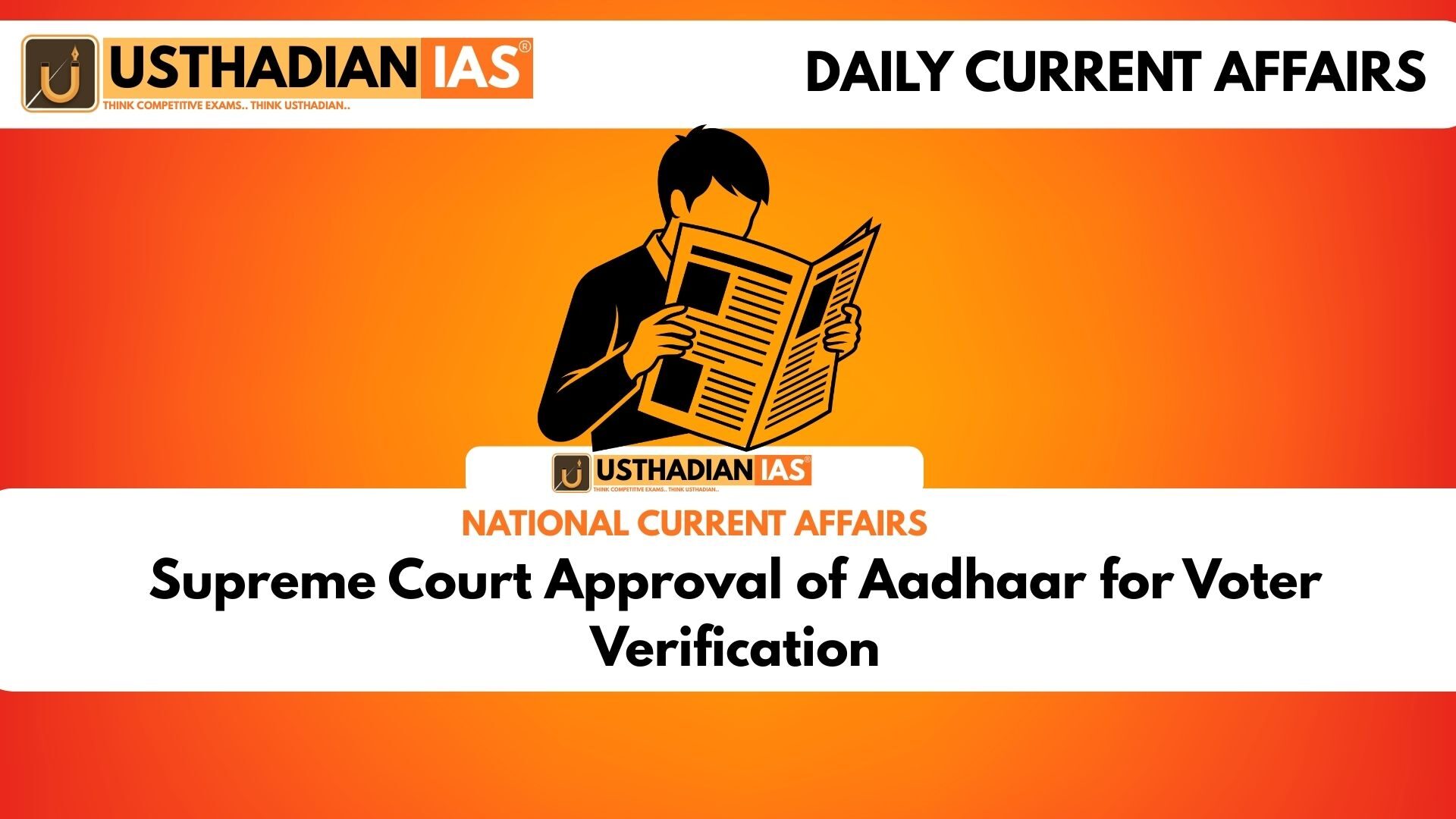Supreme Court Order
Supreme Court Approval of Aadhaar for Voter Verification: The Supreme Court has allowed the Election Commission of India (EC) to accept Aadhaar as a valid document for voter identity verification. This decision was taken in connection with the Special Intensive Revision (SIR) of electoral rolls in Bihar ahead of the Assembly elections.
The court clarified that Aadhaar will not serve as proof of citizenship, but it can be used to verify a voter’s identity. The EC retains the right to verify the authenticity of Aadhaar cards, just as it does with other identity documents.
Static GK fact: The Supreme Court of India was established on 28 January 1950 and is headquartered in New Delhi.
Legal Position of Aadhaar
The Aadhaar Act 2016 legally recognises Aadhaar for identity purposes but not as evidence of nationality. Under the Representation of the People Act 1950, various documents can be used for voter enrolment, but citizenship confirmation lies beyond the authority of Booth Level Officers (BLOs).
The court highlighted that only constitutional authorities like the President and the Election Commission can determine citizenship-related disputes.
Static GK fact: The Representation of the People Act 1950 provides for the allocation of seats and preparation of electoral rolls.
Role of the Election Commission
The Election Commission is tasked with maintaining the accuracy of the electoral rolls. Following the court’s order, the EC must now revise its instructions and formally include Aadhaar in the list of accepted documents.
The Commission has the authority to verify the genuineness of Aadhaar cards and may ask for additional proof if doubts arise. Notices issued against officials who accepted Aadhaar earlier must now be addressed in light of this ruling.
Static GK fact: The Election Commission of India was formed on 25 January 1950 and functions as an autonomous constitutional authority.
Importance for Voter Inclusion
The decision aims to prevent voter exclusion by providing flexibility in the documentation process. Although 99.6% of Bihar’s voters already submitted documents, Aadhaar gives an option for those without traditional proofs.
Concerns remain about possible misuse of forged Aadhaar cards, making strict verification processes essential to balance inclusivity and security.
Static GK Tip: Aadhaar is issued by the Unique Identification Authority of India (UIDAI), established in 2009.
Documents Accepted for Voter Enrolment
Before this order, the EC already accepted 11 documents including birth certificates, passports, caste certificates, residence proofs, land allotment certificates, and identity cards issued before 1987. With the latest ruling, Aadhaar has officially become the 12th document permitted for electoral identity verification.
Challenges Ahead
Despite the ruling, reports suggest some Booth Level Officers continue rejecting Aadhaar. This has led to disputes, legal petitions, and the need for further hearings. The court will monitor the compliance process to ensure genuine voters are not excluded while safeguarding against fraudulent enrolments.
Static GK fact: Bihar has a legislative assembly of 243 seats.
Static Usthadian Current Affairs Table
Supreme Court Approval of Aadhaar for Voter Verification:
| Topic | Detail |
| Supreme Court Decision | Aadhaar allowed for voter identity verification |
| State Concerned | Bihar Assembly elections |
| Clarification | Aadhaar not proof of citizenship |
| Related Act | Aadhaar Act 2016 |
| Electoral Law | Representation of the People Act 1950 |
| EC Role | Finalises electoral rolls and verifies documents |
| Number of Seats in Bihar Assembly | 243 |
| Aadhaar Issuing Authority | UIDAI established in 2009 |
| Supreme Court Establishment | 28 January 1950 |
| Election Commission Formation | 25 January 1950 |








